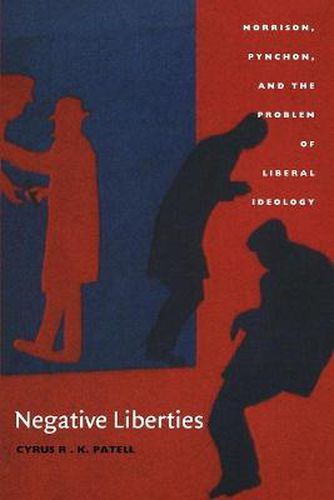Readings Newsletter
Become a Readings Member to make your shopping experience even easier.
Sign in or sign up for free!
You’re not far away from qualifying for FREE standard shipping within Australia
You’ve qualified for FREE standard shipping within Australia
The cart is loading…






Since the 19th century, ideas centered on the individual, on Emersonian self-reliance, on the right of the individual to the pursuit of happiness have had a tremendous presence in the United States - and even more so since the Reagan era. Has this presence been for the good of all? In Negative Liberties Cyrus R.K. Patell revises important ideas in the debate over individualism and the political theory of liberalism. He does so by bringing two new voices into the current discussion - Toni Morrison and Thomas Pynchon - to examine the different ways in which their writings embody, engage, and critique the official narratives generated by US liberal ideology. Patell shows that Pynchon and Morrison reveal the official narrative of US individualism as encompassing a complex structure of contradiction held in abeyance. The official narratives imagine that the goals of the individual are not at odds with the goals of the family or society and actually obscure the existence of an unholy truce between individual liberty and forms of oppression. By bringing these two fiction writers into a discourse that has been dominated by Ralph Waldo Emerson, Isaiah Berlin, John Rawls, George Kateb, Robert Bellah, and Michael Sandel, Patell unmasks the ways in which US culture has not fully shed oppressive patterns of reasoning that were dominant in the slaveholding culture from which US individualism emerged. With its interdisciplinary approach, Negative Liberties should appeal to students and scholars of American literature, culture, sociology, and politics.
$9.00 standard shipping within Australia
FREE standard shipping within Australia for orders over $100.00
Express & International shipping calculated at checkout
Since the 19th century, ideas centered on the individual, on Emersonian self-reliance, on the right of the individual to the pursuit of happiness have had a tremendous presence in the United States - and even more so since the Reagan era. Has this presence been for the good of all? In Negative Liberties Cyrus R.K. Patell revises important ideas in the debate over individualism and the political theory of liberalism. He does so by bringing two new voices into the current discussion - Toni Morrison and Thomas Pynchon - to examine the different ways in which their writings embody, engage, and critique the official narratives generated by US liberal ideology. Patell shows that Pynchon and Morrison reveal the official narrative of US individualism as encompassing a complex structure of contradiction held in abeyance. The official narratives imagine that the goals of the individual are not at odds with the goals of the family or society and actually obscure the existence of an unholy truce between individual liberty and forms of oppression. By bringing these two fiction writers into a discourse that has been dominated by Ralph Waldo Emerson, Isaiah Berlin, John Rawls, George Kateb, Robert Bellah, and Michael Sandel, Patell unmasks the ways in which US culture has not fully shed oppressive patterns of reasoning that were dominant in the slaveholding culture from which US individualism emerged. With its interdisciplinary approach, Negative Liberties should appeal to students and scholars of American literature, culture, sociology, and politics.